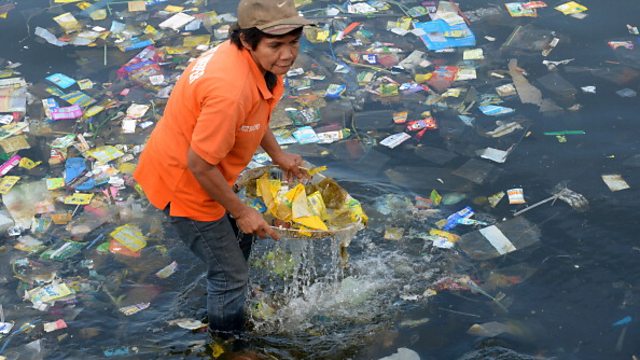
Plastics in the Oceans
Experts in waste management have calculated the amount of plastic waste entering the worlds' oceans.
Experts in waste management have calculated the amount of plastic waste entering the worlds' oceans. In 2010, five grocery bags stuffed with plastic per foot of coastline for the whole world! And it is set to get much worse if we do not deal with plastic waste in a more sustainable way.
Altruistic decisions
How does emotion influence decision-making? Prof Ray Dolan explains to AC Grayling how we don’t necessarily get wiser as we get older and asks whether drugs can restore our ability to think clearly. Prof Dolan is the Mary Kinross Professor of Neuropsychiatry at University College, London, and Director of its Wellcome Trust Centre for Neuroimaging. A pioneer in the neuroscience of decision-making, he investigates the structures in the brain involved in decision-making, using advanced techniques of neuroimaging and behavioural analysis.
Life expectancy
Listener James wrote in to ask whether the obesity crisis will have any impact on our increasing average life expectancy. He wondered also whether a reduction in smoking would counteract any potential decline of life expectancy caused by obesity. Dr Sanjay Kinra, reader in clinical Epidemiology at the London School of Hygiene & Tropical Medicine in London, attempts to answer James’ questions.
Smell and reversing paralysis
Unlike the nerve cells in any other part of our sensory system those which allow us to smell have the capacity to regrow. So how about using these cells to regenerate nerves in other parts of the body? Pamela Rutherford spoke to Geoffrey Raisman, Professor of Neural Regeneration at the Institute of Neurology at University College London. He’s spent years working on how nerves in the nose can help reverse paralysis from spinal injuries.
Creationism as recent history
To mark Darwin Day Adam Rutherford examines the origins of Creationism and its most recent variation Intelligent Design. Why do opinion polls in the US routinely find that about half of the population denies the truth of Darwin's theory and believes instead that humans were created supernaturally by God at some point within the last few thousand years? He hears from historian Thomas Dixon, and from Eugenie Scott, former director of the National Centre for Science Education - a US organisation committed to keeping evolution (and now climate change) in the US schools' curriculum.
Digital landscapes
Glasgow's embrace of the new digital world was evident in last years' technologically-savvy Commonwealth Games. There is also much research in the city in how to materialise the digital world, to make it tangible for its citizens, and to ensure that those who are not digitally enabled are not left behind.
Optical illusions
How a fish’s brain is like yours.
Science Hour was presented by Claudia Hammond with comments from science journalist at BBC Earth – Melissa Hogenboom.
Producer: Fiona Hill
Photo Credits:
(Photo: Plastic bags and other rubbish are collected from the waters of Manila Bay on July 3, 2014 during a campaign by environmental activists and volunteers calling for a ban of the use of plastic bags. Credit: Jay Directo/AFP/Getty Images)
Last on
More episodes
Previous
Next
Chapters
-
Plastics in the oceans
How much plastic waste is entering the worlds' oceans?
Duration: 09:01
Altruistic decisions
How does emotion influence decision-making?
Duration: 08:35
Average life expectancy
Will it be impacted by the obesity crisis?
Duration: 05:22
Reversing paralysis
Can the nerve cells that help us smell reverse paralysis?
Duration: 06:16
Creationism as recent history
Examining the origins of Creationism and its most recent variation Intelligent Design
Duration: 09:11
Digital landscapes
Glasgow's Digital Creativity
Duration: 04:08
Optical illusions
How a fish’s brain is like yours
Duration: 03:36
Broadcast
- Sun 15 Feb 2015 14:05GMTBBC World Service Online
Podcast
-
![]()
Unexpected Elements
The news you know, the science you don't

